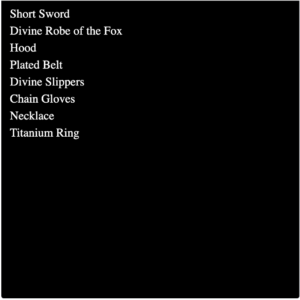HodlX Guest Post Submit Your Post
Web 3.0 promotes community-driven ecosystems with decentralized, fair and resilient governance.
Its goal is to disrupt traditional, top-down organizational structures that suffer centralization manipulation, insider control, strong-arming, etc.
But this requires a radical shift in how we perceive ownership, competence and decision-making.
Most Web 3.0 networks currently implement token-based governance. Their token holders get voting rights i.e., a say in the project’s future.
However, a closer look reveals that the one-token-one-vote approach of token-based models ultimately negates the foundational principles of Web 3.0.
Governance tokens like Curve Finance (CRV) or Uniswap (UNI) are usually tradeable in open secondary markets.
This lets random people participate in voting without factoring actual contributions or reputation among community peers.
Wealth thus translates to power and control that’s not how we envision Web 3.0. But we have contribution and reputation-based governance structures as a solution.
DAOs and the baggage of centralization
DAOs (decentralized autonomous organizations) currently represent the dominant organizational model in Web 3.0.
The ability to handle business functions without intermediaries or centralized control is one of their unique selling points (USPs).
They also replace legacy governance structures with community-driven mechanisms, facilitating grassroots decision-making.
Decentralized autonomous organizations (DAOs) typically allow token holders to participate in on-chain voting for key decisions, either directly or via delegation.
The execution of consensus is also automated using blockchain-powered smart contracts. In theory, this is a significant improvement upon the hierarchical authority frameworks common in traditional organizations.
But using token ownership as the condition for voting rights reintroduces centralization and manipulation risks through the back door.
DAOs are susceptible to whales and malicious actors who can buy massive amounts of governance tokens in secondary markets.
This grants them disproportionate influence, allows them to manipulate decisions to suit their interests and can even cause 51% attacks.
Besides whales, inexperienced community members can participate in token-based voting, lowering the quality of decisions and producing undesirable outcomes.
Moreover, team members, advisors and early adopters often get sizeable governance token allocations, which further threatens decentralization.
It can also inflate a project’s valuation by creating artificial demand through token vesting.
These are some reasons why the St. Louis Federal Reserve found that “the majority of governance tokens are held by a small group of people.” And even with relatively fair token launches, “the actual distribution often remains highly concentrated.”
This heightens pump-and-dump risks, among other outcomes, as we saw with the so-called SushiSwap exit scam.
Putting reputation and contribution over wealth
Web 3.0 must innovate alternatives that support its quest for decentralization, autonomy and transparency. Wealth can’t be the vehicle for power and control here, as it was until Web 2.0.
Because the whole endeavor then becomes futile and worthless in this scenario. And Web 3.0 fails the users it’s meant to empower.
There shall not be any single leader in Web 3.0. It’s a crucial factor to limit corruption while ensuring healthy competition and collaboration.
But for this to materialize, we must realize that anything purchasable can’t form the basis for sound and robust governance.
There shouldn’t be the scope for buying or selling votes with money. Instead, community members must earn their voting and decision-making rights.
We need governance models where local reputation and actual contributions matter more than one’s wealth or buying power.
DACs (decentralized autonomous companies) thus innovate a novel mechanism. Only those with a verifiable reputation for positive contributions to the network get voting rights in this system.
DACs function with Peter Kropotkin’s insight that “competition is the law of the jungle, but cooperation is the law of civilization.”
They derive value from member contributions, rather than the market capitalization of governance tokens.
Instead of small groups of insiders or whales, network contributors can effectively and fairly participate in governance as a whole.
While DACs can still use dedicated tokens to facilitate governance, they can’t have any monetary value or be tradeable.
These tokens are then tied to non-fungible tokens (NFTs) demonstrating reputation, which can be earned through contributions like increasing total value locked (TVL), generating transactions or business leads, assisting tech development, etc.
The number of tokens in the user’s wallet plays no role.
Towards meritocracy and fairness in Web 3.0
DACs and their reputation-based governance structure promote meritocracy in Web 3.0. They create an environment where active contributions receive their due recognition.
And most importantly, they create free governance from market dynamics, incentivizing community members to cooperate for shared interests.
Web 3.0 is meant to be a domain where individuals have the means to participate autonomously on their terms.
Reputation-based governance is a key enabler in this regard, restricting collusion among users with wealth or vested interests.
Unlike token-based models with predefined vesting schedules, it also minimizes risks like token dilution and insider trading.
Fairness is thus one of the main benefits of using reputation to determine voting power in Web 3.0. The other outcome is effective decentralization.
Both of these are crucial for Web 3.0’s long-term adoption and relevance.
They actualize the promise of a genuinely individual-centric, manipulation-resistant and fair world i.e., the progressive principles for which we believed in Web 3.0 in the first place.
Elena Sinelnikova is a co-founder of Metis, growing the project from startup to a successful and sustainable business. Before Metis, Elena founded CryptoChicks, an educational hub and accelerator for women in blockchain in 56 countries, and was a Government of Canada solutions architect.
Follow Us on Twitter Facebook Telegram
Check out the Latest Industry Announcements 
Disclaimer: Opinions expressed at The Daily Hodl are not investment advice. Investors should do their due diligence before making any high-risk investments in Bitcoin, cryptocurrency or digital assets. Please be advised that your transfers and trades are at your own risk, and any loses you may incur are your responsibility. The Daily Hodl does not recommend the buying or selling of any cryptocurrencies or digital assets, nor is The Daily Hodl an investment advisor. Please note that The Daily Hodl participates in affiliate marketing.
Featured Image: Shutterstock/S-Design1689/Tun_Thanakorn
- SEO Powered Content & PR Distribution. Get Amplified Today.
- EVM Finance. Unified Interface for Decentralized Finance. Access Here.
- Quantum Media Group. IR/PR Amplified. Access Here.
- PlatoAiStream. Web3 Data Intelligence. Knowledge Amplified. Access Here.
- Source: https://dailyhodl.com/2023/06/20/web-3-0-cannot-tackle-network-manipulation-using-token-based-governance/
- :is
- :not
- :where
- a
- ability
- accelerator
- active
- actors
- actual
- adopters
- Adoption
- advice
- advisor
- advisors
- Affiliate
- affiliate marketing
- allocations
- allow
- allows
- also
- alternatives
- among
- amounts
- an
- and
- any
- anything
- approach
- ARE
- artificial
- AS
- Assets
- assisting
- At
- authority
- Automated
- autonomous
- autonomously
- back
- basis
- BE
- becomes
- before
- believed
- benefits
- Bitcoin
- blockchain
- blockchain-powered
- business
- business functions
- but
- buy
- Buying
- by
- CAN
- Canada
- cannot
- capitalization
- Cause
- Centralization
- centralized
- class
- closer
- Co-founder
- Coindesk
- collaboration
- Common
- community
- Community Driven
- Companies
- competition
- Concentrated
- condition
- Consensus
- contracts
- contribution
- contributions
- contributors
- control
- COOPERATE
- cooperation
- Corruption
- countries
- create
- Creating
- crucial
- cryptocurrencies
- cryptocurrency
- Currently
- curve
- Curve Finance
- daily
- DAOs
- Decentralization
- decentralized
- decentralized autonomous organizations
- Decision Making
- decisions
- dedicated
- delegation
- Demand
- demonstrating
- Determine
- Development
- digital
- Digital Assets
- diligence
- dilution
- directly
- Disrupt
- distribution
- do
- does
- domain
- dominant
- Door
- due
- dynamics
- e
- Early
- early adopters
- earn
- earned
- Ecosystems
- educational
- Effective
- effectively
- either
- empower
- enabler
- endeavor
- ensuring
- Environment
- envision
- etc
- Even
- execution
- expressed
- facilitate
- facilitating
- factor
- fails
- fair
- fairly
- fairness
- Federal
- federal reserve
- finance
- First
- For
- form
- Founded
- frameworks
- Free
- from
- function
- functions
- further
- future
- generating
- get
- goal
- governance
- Government
- grants
- grassroots
- Group
- Group’s
- Growing
- Guest
- handle
- Have
- Headlines
- healthy
- Held
- here
- high-risk
- highly
- HODL
- holders
- How
- HTTPS
- Hub
- image
- implement
- improvement
- in
- incentivizing
- increasing
- individuals
- industry
- influence
- innovate
- Insider
- insider trading
- insight
- instead
- interests
- intermediaries
- investment
- Investments
- Investors
- IT
- ITS
- Key
- latest
- launches
- Law
- leader
- Leads
- Legacy
- Lets
- like
- LIMIT
- local
- locked
- long-term
- Look
- Loses
- Louis
- lowering
- Main
- Majority
- Making
- Manipulation
- Market
- Market Capitalization
- Marketing
- Markets
- massive
- Matter
- May..
- means
- meant
- mechanism
- mechanisms
- member
- Members
- METIS
- model
- models
- Monetary
- money
- more
- most
- must
- Need
- network
- networks
- NFTs
- no
- non-fungible
- non-fungible tokens
- NON-FUNGIBLE TOKENS (NFTS)
- nor
- note
- novel
- number
- of
- often
- on
- On-Chain
- ONE
- only
- open
- Opinions
- or
- organizational
- organizations
- Other
- out
- Outcome
- outcomes
- over
- own
- ownership
- participate
- participates
- People
- Peter
- Place
- plato
- Plato Data Intelligence
- PlatoData
- plays
- please
- points
- positive
- power
- principles
- producing
- progressive
- project
- projects
- promise
- promote
- promotes
- quality
- quest
- radical
- random
- rather
- realize
- reasons
- receive
- recognition
- recommend
- regard
- relatively
- relevance
- remains
- replace
- represent
- reputation
- requires
- Reserve
- resilient
- responsibility
- restricting
- Reveals
- rights
- Risk
- risks
- robust
- Role
- saw
- say
- scenario
- scope
- secondary
- Secondary Markets
- Selling
- shared
- shift
- should
- significant
- single
- small
- smart
- Smart Contracts
- solution
- Solutions
- some
- Sound
- startup
- Still
- structure
- successful
- Suit
- support
- susceptible
- sushiswap
- sustainable
- system
- tackle
- team
- Team members
- tech
- terms
- than
- that
- The
- The Daily Hodl
- the Law
- their
- Them
- then
- theory
- These
- they
- this
- those
- threatens
- Through
- Tied
- to
- token
- token holders
- Tokens
- Total
- total value locked
- tradeable
- trades
- Trading
- traditional
- Transactions
- transfers
- Transparency
- TVL
- typically
- Ultimately
- unique
- Uniswap
- until
- upon
- us
- use
- users
- using
- usps
- usually
- Valuation
- value
- vehicle
- verifiable
- Vesting
- via
- votes
- Voting
- Wallet
- was
- we
- Wealth
- web
- Web 2
- Web 2.0
- Web 3
- Web 3.0
- whales
- which
- while
- WHO
- whole
- why
- with
- without
- Women
- world
- you
- Your
- zephyrnet











